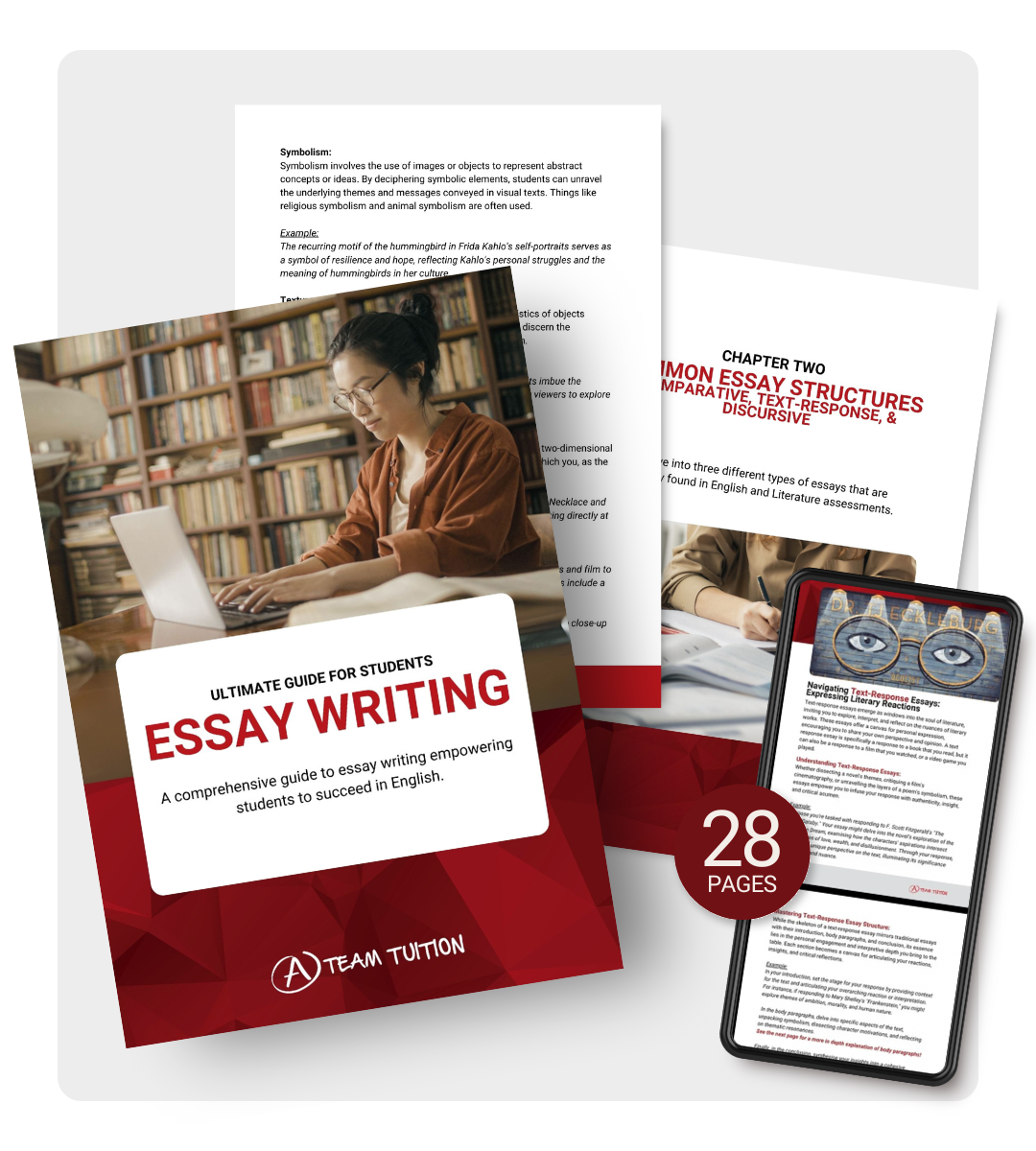How to Analyse a Text for English Class: 7 Textual Analysis Tips
If you struggle to analyse a text in an insightful way without running straight to the themes section on SparkNotes, you’re not alone! This is why we have come up with 7 textual analysis tips that you can follow which will make your analysis of literary texts much less difficult than they appear to be.
What Is a Text Analysis?
A textual analysis is an assignment that asks you to read, comprehend, and critically interpret the historical background, characters, themes, symbols, arguments, and style of a fictional literary work, whether a novel, short story, play, or poem.
Textual analysis is required in any assignment that asks you to engage with a literary work. Some common text analysis assignments may include discussing a book’s themes, comparing two works from the same genre, analyzing how a work reflects the historical context in which it was written, or giving an oral presentation from one of the major characters’ perspectives.
Whatever your assignment might be, textual analysis is designed to introduce you to important literary works that have shaped our understanding of the world and the human condition from different genres and time periods. If a textual analysis is something you struggle with, use the following 7 tips on how to analyse a text before you begin writing your English essay.

How to Analyse a Text: The Essential Steps
Use these seven steps to understand how to analyse a text in the best possible way.
1. Make Sure You’re Reading the Text Thoroughly
The first essential step is to pay close attention to the text you need to analyse while you are reading it. If the source text is short enough, consider reading it multiple times. This ensures that you understand the text as a whole and don’t miss anything relevant to the assignment you are being asked to write on the text.
2. Take Lots of Notes While Reading
The second step is to remember the importance of taking notes on significant plot lines, quotes, and themes in the text so that you can come back to them when planning and writing your analysis. There is nothing worse than not being able to remember where you read an excellent quote that is necessary to include in your analysis!
You can take notes either on a separate piece of paper and organise your information using headings or by using a sticky note system, but if you own the book, you can underline and take notes in the text itself. Whatever works best for you!
3. Write a Summary of the Plot
Your summary should only include the most important details of the story’s plotline and should be no more than 1-2 pages, depending on how long the text is. The purpose of the summary is to make sure you understand the basic flow and features of the text before you begin to analyse it.
If you’re unsure about your summary, get a group of friends together and compare how each of you outline the plot. If you’re still struggling to analyse the text you’re reading using the help of a tutor can do wonders to improve your confidence and grades.
4. Think About the Characters and their Motivation
One of the most important parts of textual analysis is to think about each individual character’s purpose and development, the motivations behind their actions, and how they relate to others in advancing the story’s plot and presenting its themes.
A great way to do this is to create profiles where you write down the name, background, personality, and relationships of every major character. If you’re a visual learner, you can even try and draw what you think each character looks like!
5. Identify the Main Themes in the Text
Understanding a literary work’s main themes often forms the backbone of an informative and creative textual analysis.
Some common themes often found in literary texts are:
- The Search For Identity
- Good Versus Evil
- A Loss Of Innocence
- The Struggle For Equality And Justice
- Isolation
- Love
- Fate Versus Free Will
6. Consider the Text’s Context
It is crucial that you are aware of how context can influence a textual analysis. First, you must consider the context of the work you are analysing. Ask yourself:
- What was happening in the world at the time it was written?
- What kind of life did the author have?
- What were their values and beliefs?
- Why did they write the book?
- What other works influenced them and how?
You should also pay attention to your own context as well. It is very easy to misinterpret a text when you impose your own attitudes, prejudices, and understandings of words and themes onto your analysis. It’s okay to apply the text to your own situation and use it to help you connect with its characters and themes, but you should be mindful about analysing a text first and foremost in its own context.
7. Use Examples to Support Your Analysis
Make sure that you are backing up your claims with examples from the text as a way of supporting your argument. Saying that a text approaches a certain theme in a particular way, or claiming that one character is more important to the plot than another, is not going to be persuasive if you don’t support these arguments with evidence from the text itself. This might include quotes, pointing to certain scenes, or if you’re making a point about context, a reference from an academic source (a book, journal article, professional website, etc.).
This step is crucial for getting an A in English, as it elevates your analysis from simply a presentation of your “opinion” to demonstrating you have properly read and understood the text in all of its complexity, and have something interesting and insightful to say about it.
Do You Need Extra Help Analysing a Text for English Class?
Knowing how to do textual analysis can be a challenge as literature-related assignments can often be more abstract compared to other subjects. There is no shame in struggling with textual analysis assignments! One-on-one tutoring can help you tackle these abstract assignments with ease, and help improve your analytical skills.
Do you need a helping hand with literary English tasks? A Team Tuition is here to help. With our tried and true tutoring methods, we can help your child improve their performance in school with our at-home and online tutoring. Find a tutor near you today!

